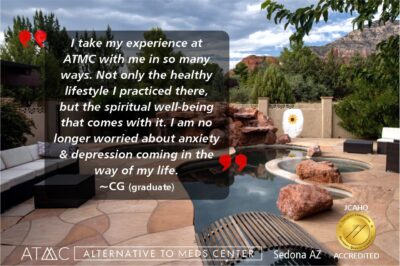1. Voineskos D, Daskalakis ZJ, Blumberger DM. Management of Treatment-Resistant Depression: Challenges and Strategies. Neuropsychiatr Dis Treat. 2020 Jan 21;16:221-234. doi: 10.2147/NDT.S198774. PMID: 32021216; PMCID: PMC6982454. [cited 2024 Feb 2]
2. Gerhard T, Stroup TS, Correll CU, Huang C, Tan Z, Crystal S, Olfson M. Antipsychotic Medication Treatment Patterns in Adult Depression. J Clin Psychiatry. 2018 Mar/Apr;79(2):16m10971. doi: 10.4088/JCP.16m10971. PMID: 28686818; PMCID: PMC8215589. [cited 2024 Feb 2]
3. Baldessarini RJ, Vázquez GH, Tondo L. Bipolar depression: a major unsolved challenge. Int J Bipolar Disord. 2020 Jan 6;8(1):1. doi: 10.1186/s40345-019-0160-1. PMID: 31903509; PMCID: PMC6943098. [cited 2024 Feb 2]
4. Bennett F, Ferner R, Sofat R. Overprescribing and rational therapeutics: Barriers to change and opportunities to improve. Br J Clin Pharmacol. 2021 Jan;87(1):34-38. doi: 10.1111/bcp.14291. Epub 2020 Apr 14. PMID: 32216108. [cited 2024 Feb 2]
5. Mihanović, M., Restek-Petrović, B., Bodor, D., Molnar, S., Oresković, A., & Presecki, P. (2010). Suicidality and side effects of antidepressants and antipsychotics. Psychiatria Danubina, 22(1), 79–84. [cited 2024 Feb 2]
6. Wang P, Si T. Use of antipsychotics in the treatment of depressive disorders. Shanghai Arch Psychiatry. 2013 Jun;25(3):134-40. doi: 10.3969/j.issn.1002-0829.2013.03.002. PMID: 24991148; PMCID: PMC4054548. [cited 2024 Feb 2]
7. Ho BC, Andreasen NC, Ziebell S, Pierson R, Magnotta V. Long-term antipsychotic treatment and brain volumes: a longitudinal study of first-episode schizophrenia. Arch Gen Psychiatry. 2011 Feb;68(2):128-37. doi: 10.1001/archgenpsychiatry.2010.199. PMID: 21300943; PMCID: PMC3476840. [cited 2024 Feb 2]
8. Chand SP, Arif H. Depression. [Updated 2023 Jul 17]. In: StatPearls [Internet]. Treasure Island (FL): StatPearls Publishing; 2024 Jan-. Available from: https://www.ncbi.nlm.nih.gov/books/NBK430847/ [cited 2024 Feb 2]
9. Seeman P. (2002). Atypical antipsychotics: mechanism of action. Canadian journal of psychiatry. Revue canadienne de psychiatrie, 47(1), 27–38. [cited 2024 Feb 2]
10. Nandra KS, Agius M. The differences between typical and atypical antipsychotics: the effects on neurogenesis. Psychiatr Danub. 2012 Sep;24 Suppl 1:S95-9. PMID: 22945197. [cited 2024 Feb 2]
11. Ali T, Sisay M, Tariku M, Mekuria AN, Desalew A. Antipsychotic-induced extrapyramidal side effects: A systematic review and meta-analysis of observational studies. PLoS One. 2021 Sep 10;16(9):e0257129. doi: 10.1371/journal.pone.0257129. PMID: 34506552; PMCID: PMC8432767. [cited 2024 Feb 2]
12. FDA Label Seroquel (quetiapine fumerate) approval 1997 [cited 2024 Feb 2]
13. FDA Label Zyprexa (olanzapine injectable & orally disintegrating tablets) [approval 1997, 2006] [cited 2024 Feb 2]
14. FDA label Haldol (haloperidol injectable) [approval revised 2005] [cited 2024 Feb 2]
15. Samaha AN, Seeman P, Stewart J, Rajabi H, Kapur S. “Breakthrough” dopamine supersensitivity during ongoing antipsychotic treatment leads to treatment failure over time. The Journal of Neuroscience : the Official Journal of the Society for Neuroscience. 2007 Mar;27(11):2979-2986. DOI: 10.1523/jneurosci.5416-06.2007. PMID: 17360921; PMCID: PMC6672560. [cited 2024 Feb 2]
16. Morrison P, Meehan T, Stomski NJ. Living with antipsychotic medication side-effects: the experience of Australian mental health consumers. Int J Ment Health Nurs. 2015 Jun;24(3):253-61. doi: 10.1111/inm.12110. Epub 2014 Dec 22. PMID: 25529392. [cited 2024 Feb 2]
17. Moncrieff J, Gupta S, Horowitz MA. Barriers to stopping neuroleptic (antipsychotic) treatment in people with schizophrenia, psychosis or bipolar disorder. Therapeutic Advances in Psychopharmacology. 2020;10. doi:10.1177/2045125320937910 [cited 2024 Feb 2]
18. Myles H, Myles N, Large M. Cannabis use in first episode psychosis: Meta-analysis of prevalence, and the time course of initiation and continued use. Aust N Z J Psychiatry. 2016 Mar;50(3):208-19. doi: 10.1177/0004867415599846. Epub 2015 Aug 18. PMID: 26286531. [cited 2024 Feb 2]
19. Oedegaard CH, Davidson L, Stige B, Veseth M, Blindheim A, Garvik L, Sørensen JM, Søraa Ø, Engebretsen IMS. “It means so much for me to have a choice”: a qualitative study providing first-person perspectives on medication-free treatment in mental health care. BMC Psychiatry. 2020 Aug 8;20(1):399. doi: 10.1186/s12888-020-02770-2. PMID: 32770965; PMCID: PMC7414551. [cited 2024 Feb 2]
20. van der Heijden FM, Fekkes D, Tuinier S, Sijben AE, Kahn RS, Verhoeven WM. Amino acids in schizophrenia: evidence for lower tryptophan availability during treatment with atypical antipsychotics? J Neural Transm (Vienna). 2005 Apr;112(4):577-85. doi: 10.1007/s00702-004-0200-5. Epub 2004 Sep 14. PMID: 15372327. [cited 2024 Feb 2]
21. Saleem S, Shaukat F, Gul A, Arooj M, Malik A. Potential role of amino acids in pathogenesis of schizophrenia. Int J Health Sci (Qassim). 2017 Jul-Sep;11(3):63-68. PMID: 28936154; PMCID: PMC5604273. [cited 2024 Feb 2]
22. Hoffer, A., & Osmond, H. (1964). TREATMENT OF SCHIZOPHRENIA WITH NICOTINIC ACID A Ten Year Follow‐up 1. Acta Psychiatrica Scandinavica, 40(2), 171-189. [cited 2024 Feb 2]
23. Lakhan, S. E., & Vieira, K. F. (2008). Nutritional therapies for mental disorders. Nutrition journal, 7(1), 1-8. [cited 2024 Feb 2]
24. Qureshi, N. A., & Al-Bedah, A. M. (2013). Mood disorders and complementary and alternative medicine: a literature review. Neuropsychiatric disease and treatment, 9, 639–658 [cited 2024 Feb 2]
25. Butterfield, N., Schultz, T., Rasmussen, P., & Proeve, M.J. (2017). Yoga and mindfulness for anxiety and depression and the role of mental health professionals: a literature review. The Journal of Mental Health Training, Education and Practice, 12, 44-54.
26. Onaolapo OJ, Onaolapo AY. Nutrition, nutritional deficiencies, and schizophrenia: An association worthy of constant reassessment. World J Clin Cases. 2021 Oct 6;9(28):8295-8311. doi: 10.12998/wjcc.v9.i28.8295. PMID: 34754840; PMCID: PMC8554424. [cited 2024 Feb 2]
27. Hsu MC, Ouyang WC. A Systematic Review of Effectiveness of Omega-3 Fatty Acid Supplementation on Symptoms, Social Functions, and Neurobiological Variables in Schizophrenia. Biol Res Nurs. 2021 Oct;23(4):723-737. doi: 10.1177/10998004211020121. Epub 2021 Jul 20. PMID: 34281415. [cited 2024 Feb 2]










